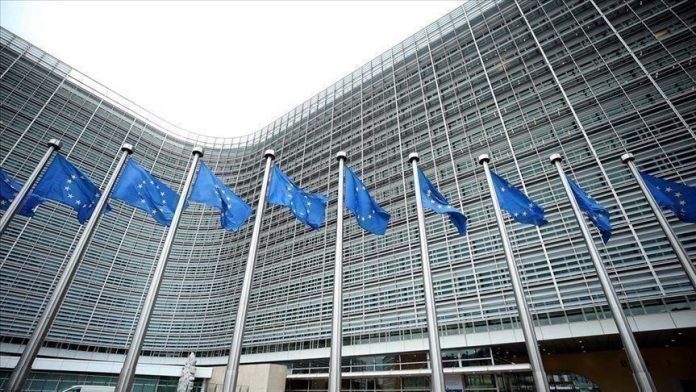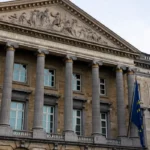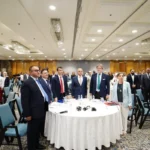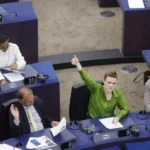The European Commission plans to tackle political and economic instability in Tunisia, which is leading to an influx of migrants caused by economic instability, according to an internal memo sent to member states, seen by EURACTIV.
“The deterioration of the political and economic situation in the country, marked by rising food prices and high unemployment, is of growing concern,” says the Commission’s note on the situation in the country. country, which was once the star child of the Arab Spring democratic uprising.
Since March, “the situation has deteriorated on three fronts: the question of Tunisia’s financial viability, the question of the political environment, and finally the question of migration – we have migrants transferred, essentially, to Italy,” echoed a senior EU official.
The situation is therefore “very worrying”, several EU diplomats said as EU foreign ministers met on Monday (March 24) with Tunisia on their agenda for the second consecutive month.
“We are particularly focused on the migration front and supporting the Tunisian people,” said an EU diplomat.
Border management
According to the memo, the European Commission proposes to tackle the current influx of migrants from the country to the EU, which recorded a tenfold increase in irregular arrivals from Tunisia in the first quarter of 2023 compared to the same period in 2022.
The influx is due to internal issues, including President Kais Saied hinting that the arrival of sub-Saharan migrants was part of a plot to take control of the country.
Southern member states are concerned that the current conflict in Sudan could trigger a migration flow to North Africa, including Tunisia, which would increase pressure on systems and the illegal migration route across the sea. Mediterranean, as EURACTIV understands.
At the same time, the European Commission is optimistic that the pact on migration and asylum will be finalized before the European elections next year. This recent considerable increase justifies increased cooperation efforts in this area in order to alleviate migratory pressure and save lives at sea, explains the Commission in the memo.
One of the “key areas” of work includes “reducing irregular departures by supporting Tunisian border and migration management as well as search and rescue capabilities”.
The European Commission plans to use “part” of the additional 110 million euros that European Commission President Von der Leyen has indicated that the institution will “make available” for projects in North Africa “in more than the 208 million euros foreseen to address migration-related challenges”.
The money will be used to finance equipment, the note specifies, “for example ships”. The EU executive reports an ongoing tender for radar equipment to strengthen Tunisia’s coastal surveillance and the Maritime Rescue Coordination Center, the point of contact for incidents at sea ( CRMC).
“Efforts to strengthen cooperation with Frontex, the European border surveillance agency, among others, are also envisaged, specifies the Commission, in order to” increase cooperation in the fight against the smuggling of migrants and the trafficking of Human being “. While “ensuring full respect for fundamental rights”.
The European executive proposes to “seek to increase patrols and search and rescue operations while guaranteeing respect for the fundamental rights of migrants”. Other areas of action include “exploring cooperation” between European and Tunisian maritime rescue coordination centres, exchanging information and planning the repatriation of those who do not have the right to stay. in the EU, whether in Tunisia or in other States.
The European executive also mentions the need to carry out “an assessment of specific needs” with the Tunisian authorities.
Macro-financial assistance in question
The European Commission is “preparing a substantial macro-financial assistance package” and “exploring possibilities for additional budgetary support to Tunisia,” the internal memo said.
But the macro-financial assistance package that the European Union could send to Tunisia is “pending a Tunisian agreement with the International Monetary Fund (IMF)” on the package of 1.9 billion euros conditioned by democracy, the note says.
“We don’t want Tunisia to collapse financially. That would be bad news for everyone. But we need political preconditions,” the EU official said.
Member states are divided on whether the EU should support Tunisia financially without IMF help. “The Tunisian authorities must move towards an agreement with the IMF,” an EU diplomat told EURACTIV. “This is a key point to allow the EU to move forward with economic support,” he added.
On the other hand, member states like Italy have been pushing for the EU to step forward and disburse the money even without President Saied’s commitment, which would allow the country to benefit from some support and avoid bankruptcy.







